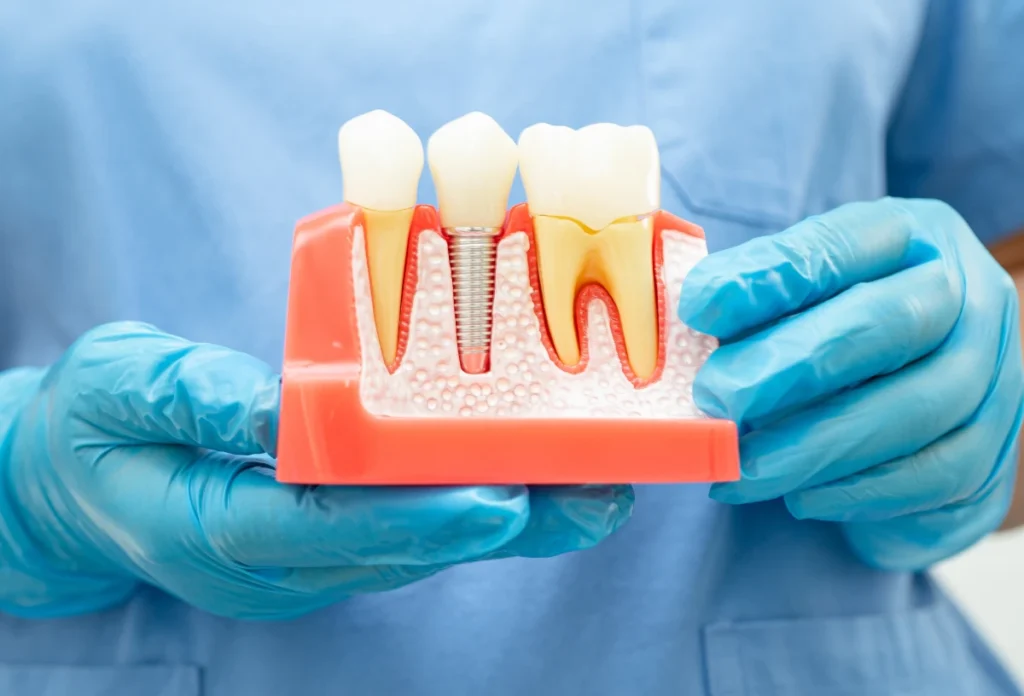Every year, Americans leave billions in unspent FSA (Flexible Spending Account) dollars behind — money that disappears if it isn’t used by the deadline. If you’ve been delaying dental care because of cost or timing, the final weeks of the year are the perfect moment to catch up, especially if you have an FSA or HSA.
Dental care is one of the most practical, IRS-approved ways to use remaining FSA funds before they expire. And if you have an HSA, you have even more flexibility to pay for important dental treatments.
FSA vs HSA: What’s the Difference?
Flexible Spending Account (FSA)
- Offered through your employer
- Funds typically expire at the end of the plan year
- Some plans offer a 2½-month grace period
- Other plans allow up to $640 rollover (IRS 2024 limit)
Health Savings Account (HSA)
- Paired with high-deductible health plans
- Funds roll over indefinitely
- Can be saved or invested long-term
- Covers a wide variety of medical and dental expenses
- Cannot be used to purchase a dental discount plan — but can pay the discounted rate at the dentist
What Dental Procedures Are FSA-Eligible?
Dentistry is one of the most FSA-friendly categories. You can confidently use FSA funds for:
Preventive Care
- Cleanings
- Routine exams
- X-rays
- Fluoride treatments
- Sealants
- Periodontal cleanings
Restorative and Major Care
- Fillings
- Crowns
- Bridges
- Root canals
- Extractions
- Dentures and partials
- Dental implants (in most plans)
Orthodontic Care
- Braces (including clear aligners in many cases)
- Retainers
- Payment plans for orthodontic treatment
Other Eligible Items
- Nightguards
- TMJ treatments
- Temporary dental filling kits
- Toothache pain relief products
Not typically covered: cosmetic treatments such as whitening and veneers.
What Dental Expenses Can HSAs Cover?
The IRS allows HSA funds to cover almost all medically necessary dental expenses, including:
- Cleanings and exams
- Fillings, crowns, and bridges
- Root canals
- Orthodontic care (braces, aligners)
- Dentures and partials
- Dental implants
- Periodontal treatments
- Emergency dental visits
Your HSA cannot be used to purchase a dental discount plan, but you can use your HSA to pay for the discounted dental fees when you use a 1Dental savings plan. This combination offers both cost savings and tax advantages.
Why Dental Care Is a Smart Way to Use Your FSA Before It Expires
- It prevents serious dental issues that worsen with time
- Easy to schedule quickly (cleanings and exams)
- Affordable with a dental savings plan (20–60% average savings)
- High-impact investment in long-term oral health
- Ideal for families needing year-end cleanings or orthodontic visits
Best Last-Minute Dental Procedures to Use FSA Dollars On
- Cleaning + exam + X-rays
- Fillings (prevent future crown or root canal)
- Crowns and replacement of failed fillings
- Deep cleanings for gum inflammation
- Nightguards for clenching/grinding
- Orthodontic adjustments or payments
- Dentures, partials, and repairs
Real-Life Example: Protecting a Tooth While Waiting for Treatment
Many people delay dental treatment due to cost or schedule constraints. Recently, one of us experienced this firsthand when two adjacent upper bicuspids developed decay after a failed filling. While waiting for crowns, careful daily brushing, flossing, and a fluoride rinse helped prevent the decay from worsening until treatment could be completed.
This story is a reminder: you’re not alone, and even if treatment must be delayed, proactive care at home can help — and FSA or HSA funds can make timely dental care possible again.
How 1Dental Helps You Stretch Your FSA or HSA Dollars
- 20–60% savings on most dental procedures
- No deductibles or annual limits
- No waiting periods — activate today, use today
- Pairs perfectly with both FSA and HSA spending
- Ideal for year-end scheduling and urgent dental needs
Your End-of-Year Dental Checklist
- Check your FSA balance
- Confirm your plan’s deadline (Dec 31 or grace period)
- Schedule a dentist appointment ASAP
- Use FSA for all eligible dental procedures
- Use HSA funds for additional treatments
- Activate a 1Dental savings plan to reduce costs instantly
- Save and organize receipts for documentation
- Start the new year with a clean, healthy smile
Conclusion
Your FSA and HSA funds are powerful financial tools. Using them for dental care is one of the smartest decisions you can make at the end of the year. Whether you need a routine cleaning, fillings, crowns, orthodontic work, or overdue dental treatment, year-end is the perfect time to get it done.
You don’t have to choose between losing money or putting off important dental care — you have affordable options, and 1Dental is here to help.






